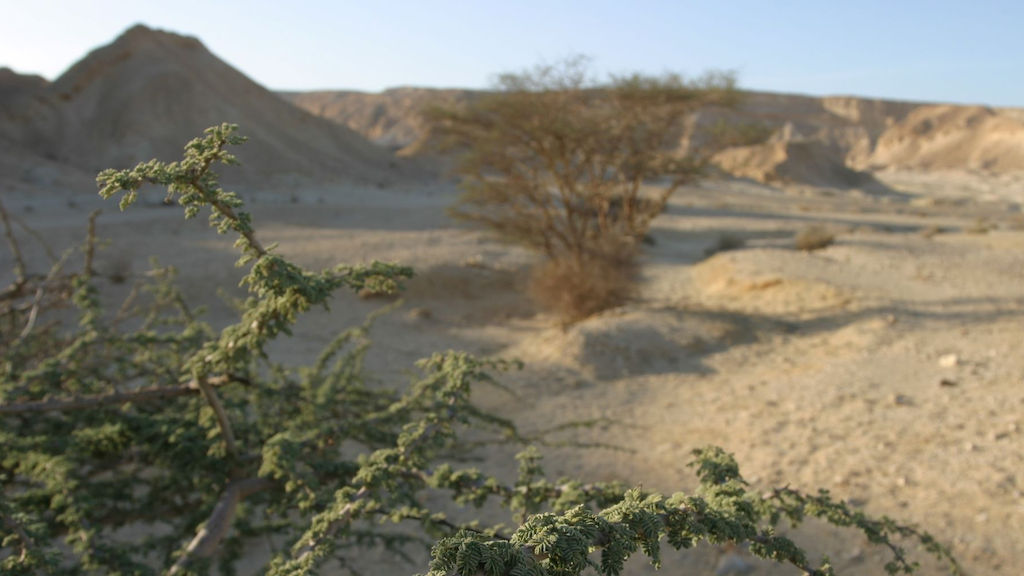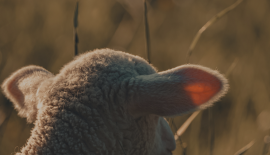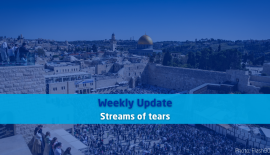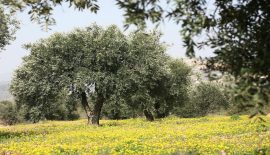‘Gharqad’, the Tree of the Jews
Terrorism experts and conflict theorists distinguish between capabilities and motivation in a military force or terrorist group. To carry out a terrorist attack, you need both the ability to do damage, the technical know-how to make a bomb, and at the same time the motivation to use a knife, an axe, a car or an explosive device as a terrorist weapon. If either of these, the ability or the motivation, is missing, a terrorist attack cannot occur.
“We can deal with the capabilities of our adversaries,” an Israeli academic who specialised in the study of terrorism once told me, “but we can’t get at their motivation. Quite often, we reinforce the motivation to perpetrate terror against us by our actions to limit terrorist capabilities.”
What number of missiles destroyed how many houses; how many bombs crippled which people; which strategies were successful, and by which tactics who was outwitted never really interested me. I would like to understand what motivates people to become terrorists – even if this first and foremost destroys or cripples themselves and their loved ones. At the same time, the goals they set for themselves in view of their opponents recede into the ever more unattainable distance.
Almost Embarrassing
“In the end times, even nature will support us,” a Palestinian told me many years ago: “We will destroy all the Jews!” – The whole thing seemed so childish to me that I never really wanted to write about it.
But then, on 9 January 2012, the Grand Mufti of Jerusalem spoke out. What he had to say was broadcast on official Palestinian Authority television. Sheikh Muhammad Ahmad Hussein had been installed in July 2006 by Palestinian President Mahmoud Abbas as the spiritual leader of all Muslims in Israel and the Palestinian Authority. What he had to say on the 47th anniversary of Fatah’s founding can still be heard by anyone on the Internet.
With the Authority of the Grand Mufti of Jerusalem
It should be kept in mind that Mahmoud Abbas, commonly referred to as ‘Abu Mazen,’ is considered ‘ready for talks,’ expressly in contrast to the ‘hardliner’ Netanyahu. And Fatah is the backbone of the Palestinian Authority, which explicitly presents itself to Westerners as secular, in contrast to the ‘Islamist’ Hamas.
Grand Mufti Muhammad Hussein proclaimed: “Palestine in its entirety is a revolution, since [Caliph] Umar came [to conquer Jerusalem, 637 CE], and continuing today and until the End of Days.” The Grand Mufti underlined the reliability of the hadith before quoting it:
“The Hour [of Resurrection] will not come until you fight the Jews. The Jew will hide behind stones or trees. The stones or trees will call: ‘Oh Muslim, servant of Allah, there is a Jew behind me, come and kill him.’ Except for the Gharqad tree [which will keep silent].”
This hadith is also quoted in the Hamas Charter of 18 August 1988, in Article 7 under the heading The Universality of the Islamic Resistance Movement.
Do Settlers Plant Gharqad Trees?
“Therefore,” the highest spiritual representative of the Palestinian Authority declared in all seriousness at the Fatah anniversary in January 2012, “it is no wonder that you see Gharqad [trees] surrounding the [Israeli] settlements and colonies.”
Over the years, in countless encounters, I have found that most Arab Muslims know immediately what the Gharqad is about when you ask them. Even on the faces of obviously illiterate Bedouins, a smug smile spontaneously appears in response, obviously not due to my difficulty in pronouncing the first letter ‘gh’ – a guttural ‘r’.
The Internet offers an ever-growing selection of articles on the Gharqad, not infrequently repeating the claim that Jews plant these trees in the occupied territories because they know that Islam is right and that violent confrontation between Jews and Muslims is inevitable.
Is the Massacre Unavoidable?
Pious Muslims are firmly convinced that “the final massacre is inevitable and has to happen at all costs”. Liberal, friendly, diplomatic, or dialogue-minded Muslims go to great lengths to explain these statements as forgeries in parts of the hadiths, which then led to misunderstandings. Others believe that one should not derive legally binding instructions from this narrative.
They are meant to be a description, not a prescription.
Personally, I was told by Muslim friends that such statements were directed only against those non- Muslims who stubbornly opposed the one true God or adhered to a false messiah, the Antichrist. The Qur’an is said to take great pains distinguishing between righteous and sinful Jews.
What is a Gharqad?
It gets funny when an interested YouTuber sets out to ask Jews and Israelis if they know and maybe even plant the Gharqad. But even in Israeli nurseries, no one seems to know the ‘tree of the Jew.’
My own years of inquiries did not really yield a satisfactory answer even from experts in botany, the flora of the Holy Land, and the plants mentioned in ancient holy books. The majority today seems to have settled on a thorny, salty scrub called in Hebrew (yamluah), bearing the Latin name Nitraria retusa.
However, it is crucial to the question about the motivation and trigger of the never-ending conflict between radical Muslims and the Jewish state of Israel that such narratives obviously continue to spread and stubbornly resist all rationalisation efforts.
It is decisive to have them in mind if we wish to understand why Hamas’ chief Yahya Sinwar only days after Israel’s destructive military campaign in spring 2021, is able to publically state: “Israel can expect more violence”, talk about “10,000 martyrs” and still be able to move around freely among the population of Gaza that so much suffered from this seemingly unending and increasingly vicious war.






